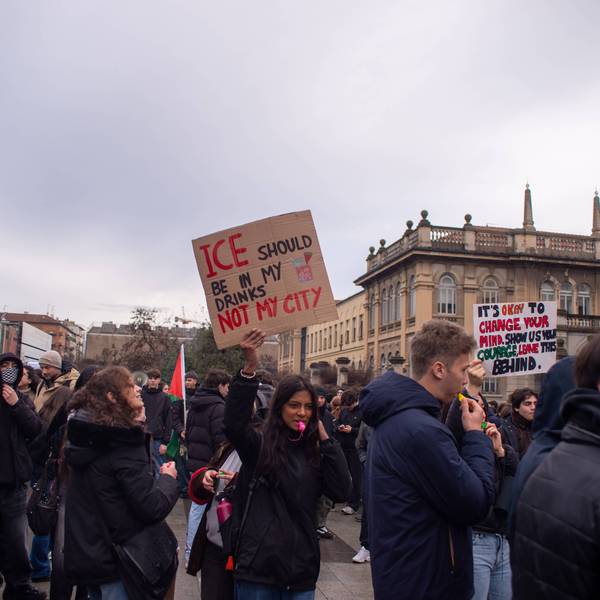DURHAM, N.C. -- It is familiar, the outrage and alarm that many Americans are feeling at reports that Russia, according to a secret intelligence assessment, interfered in the United States election to help Donald J. Trump become president.
I have been through this before, overwhelmed by a similar outrage and alarm.
To be specific: On the morning of Oct. 22, 1970, in what was then my home in Santiago de Chile, my wife, Angelica, and I listened to a news flash on the radio. Gen. Rene Schneider, the head of Chile's armed forces, had been shot by a commando on a street of the capital. He was not expected to survive.
Angelica and I had the same automatic reaction: It's the C.I.A., we said, almost in unison. We had no proof at the time -- though evidence that we were right would eventually, and abundantly, surface -- but we did not doubt that this was one more American attempt to subvert the will of the Chilean people.
Six weeks earlier, Salvador Allende, a democratic Socialist, had won the presidency in a free and fair election, in spite of the United States' spending millions of dollars on psychological warfare and misinformation to prevent his victory (we'd call it "fake news" today). Allende had campaigned on a program of social and economic justice, and we knew that the government of President Richard M. Nixon, allied with Chile's oligarchs, would do everything it could to stop Allende's nonviolent revolution from gaining power.
The country was rife with rumors of a possible coup. It had happened in Guatemala and Iran, in Indonesia and Brazil, where leaders opposed to United States interests had been ousted; now it was Chile's turn. That was why General Schneider was assassinated. Because, having sworn loyalty to the Constitution, he stubbornly stood in the way of those destabilization plans.
General Schneider's death did not block Allende's inauguration, but American intelligence services, at the behest of Henry A. Kissinger, continued to assail our sovereignty during the next three years, sabotaging our prosperity ("make the economy scream," Nixon ordered) and fostering military unrest. Finally, on Sept. 11, 1973, Allende was overthrown and replaced by a vicious dictatorship that lasted nearly 17 years. Years of torture and executions and disappearances and exile.
Given all that pain, one might presume that some glee on my part would be justified at the sight of Americans squirming in indignation at the spectacle of their democracy subjected to foreign interference -- as Chile's democracy, among many others', was by America. And yes, it is ironic that the C.I.A. -- the very agency that gave not a whit for the independence of other nations -- is now crying foul because its tactics have been imitated by a powerful international rival.
I can savor the irony, but I feel no glee. This is not only because, as an American citizen myself now, I am once again a victim of this sort of nefarious meddling. My dismay goes deeper than that personal sense of vulnerability. This is a collective disaster: Those who vote in the United States should not have to suffer what those of us who voted in Chile had to go through. Nothing warrants that citizens anywhere should have their destiny manipulated by forces outside the land they inhabit.
The seriousness of this violation of the people's will must not be flippantly underestimated or disparaged.
When Mr. Trump denies, as do his acolytes, the claims by the intelligence community that the election was, in fact, rigged in his favor by a foreign power, he is bizarrely echoing the very responses that so many Chileans got in the early '70s when we accused the C.I.A. of illegal interventions in our internal affairs. He is using now the same terms of scorn we heard back then: Those allegations, he says, are "ridiculous" and mere "conspiracy theory," because it is "impossible to know" who was behind it.
In Chile, we did find out who was "behind it." Thanks to the Church Committee and its valiant, bipartisan 1976 report, the world discovered the many crimes the C.I.A. had been committing, the multiple ways in which it had destroyed democracy elsewhere -- in order, supposedly, to save the world from Communism.
This country deserves, as all countries do -- including Russia, of course -- the possibility of choosing its leaders without someone in a remote room abroad determining the outcome of that election. This principle of peaceful coexistence and respect is the bedrock of freedom and self-determination, a principle that, yet again, has been compromised -- this time, with the United States as its victim.
What to do, then, to restore faith in the democratic process?
First, there should be an independent, transparent and thorough public investigation so that any collusion between American citizens and foreigners bent on mischief can be exposed and punished, no matter how powerful these operatives may be. The president-elect should be demanding such an inquiry, rather than mocking its grounds. The legitimacy of his rule, already damaged by his significant loss of the popular vote, depends on it.
But there is another mission, a loftier one, that the American people, not politicians or intelligence agents, must carry out. The implications of this deplorable affair should lead to an incessant and unforgiving meditation on our shared country, its values, its beliefs, its history.
The United States cannot in good faith decry what has been done to its decent citizens until it is ready to face what it did so often to the equally decent citizens of other nations. And it must firmly resolve never to engage in such imperious activities again.
If ever there was a time for America to look at itself in the mirror, if ever there was a time of reckoning and accountability, it is now.



